
I’m deep into audio power amplifiers because they remind me of race car engines. Both power sources are wildly inefficient, converting only a small percentage of their stored energy into work while dissipating the rest as heat and vibration. Mainly though, I love how race car engines sound. How they shake the air. Just like amps and speakers.
Audio-frequency power amplifiers take a small input signal-usually less than 1V-apply it to an input impedance of (typically) no less than 10k ohms, and make this tiny eyeblink of power (0.0001 W) into a waveform that's many times more powerful, capable in some cases of doing hundreds of watts of speaker-moving work. To grasp the magnitude of this chore, and what I am about to describe, it might be useful to imagine power amplifiers as energy adders.
The majority of audio amplifiers I've encountered were built-in closed metal boxes (with power cords), and every high school grad knows that energy is conserved: neither gained or lost. Therefore, if we want more energy at the output-if we want the amplifier to amplify-then we need to import energy from an outside source like our household AC line) and store it in something-capacitors-that's engineered to hold and release a rapidly varying stream of energy.
Audio frequency amplifiers are notoriously inefficient. Therefore, amplifiers of the highest fidelity must not only store (by necessity limited) volumes of stable standing energy in their capacitors; they must also have effortless access to a flow of fresh energy through their power cords (to fill and refill those capacitors) and, equally important, a direct, low-impedance path to an infinite source of free electrons from our good and gracious Mother Earth.
This story is from the {{IssueName}} edition of {{MagazineName}}.
Start your 7-day Magzter GOLD free trial to access thousands of curated premium stories, and 9,000+ magazines and newspapers.
Already a subscriber ? Sign In
This story is from the {{IssueName}} edition of {{MagazineName}}.
Start your 7-day Magzter GOLD free trial to access thousands of curated premium stories, and 9,000+ magazines and newspapers.
Already a subscriber? Sign In
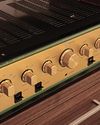
German kitchens, Japanese amps, and Afropop gems
BRILLIANT CORNERS - I have a day job at a museum. One of my favorite things about working there is taking the elevator from my office down to one of the floors open to the public; I walk into the galleries through a discreet panel in the wall. This makes me feel like I'm in one of those horror-movie manors with a tunnel concealed behind a bookshelf. Sometimes I startle people, which I kind of enjoy.
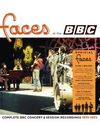
EDITOR'S PICK - RECORDING OF THE MONTH
The record business was awash in money and power. Vinyl LPs were still five bucks, and while the pressings could be suspect, the music-buying public still snapped them up en masse.

The Butthole Surfers wipe out
REVINYLIZATION - Music's lunatic fringe drifts further out every hour. As it should. In this century, with computers playing an ever-larger role, music continues to fragment and become infinitely more varied. This splintering is either the essence of what keeps it relevant as an art form or something profoundly disturbing, to be hated and feared.
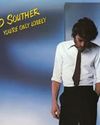
You're only lonely
AURAL ROBERT - The least surprising story in music today is the inevitable passing of irreplaceable talent. Tenor saxophonist Benny Golson died at age 95 the day I finished this salute to another fallen star, Southern California singer/songwriter John David \"JD\" Souther.
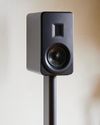
PS Audio Aspen FR5 - LOUDSPEAKER
I remember the first PS Audio product: a simple phono stage. It was so simple - a passive RIAA eq filter flanked by a pair of primitive op-amps - that when the schematic was made public, I built one myself; I was in the midst of my DIY years. I thought it was, to use a word from that time, nifty.
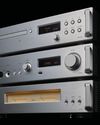
TEAC UD-701N - STREAMING PREAMP, D/A CONVERTER
In Gramophone Dreams #88, I described the sound of TEAC's VRDS-701T CD transport as \"dense and precise in a way I had never previously heard from digital.\" I went on to explain, \"by dense, I mean there was a tangible corporeality effected by seemingly infinite quantities of small, tightly packed molecules of musical information.\"
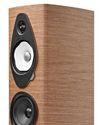
Sonus faber Sonetto V G2 - LOUDSPEAKER
Here's a hard truth: A written review of a full-sized speaker any speaker, really-is, at best, semi-useful. We all listen differently, we have different musical tastes, our system electronics are different, and our listening rooms vary a lot. You will gain a general picture of a speaker's capabilities and foibles from John Atkinson's measurements, and I can tell you how the speakers sound to me, in my room. But that's it. You need to hear them for yourself before making a buying decision. The best I can do is tell you how my music brain felt when the speakers were in my house and making music.
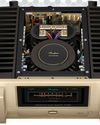
STEREOPHILE'S 33RD ANNUAL - PRODUCT OF THE YEAR AWARD 2024
When Stereophile's Product of the Year Awards were first published, in 1992, we decided that unlike some other publications and their awards schemes, we would keep the number of categories to a minimum. That way, we would avoid what the late Art Dudley once described as the \"every child in the class gets a prize\" syndrome.
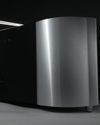
Moon 861 - POWER AMPLIFIER
It is unusual to begin a review with a detailed discussion of setup. But setup protocol for the Moon 861 power amplifier ($22,000 each), the top-level amplifier in the North Collection from Moon, which I reviewed bridged in mono, proved crucial to its sound.

Mobile Fidelity, PrimaLuna, and First Watt redux
GRAMOPHONE DREAMS - It's important for readers to remember that I've spent my adult life as an artist and mechanic. Making things. Working as a tradesperson during the day then at an easel or workbench at night.